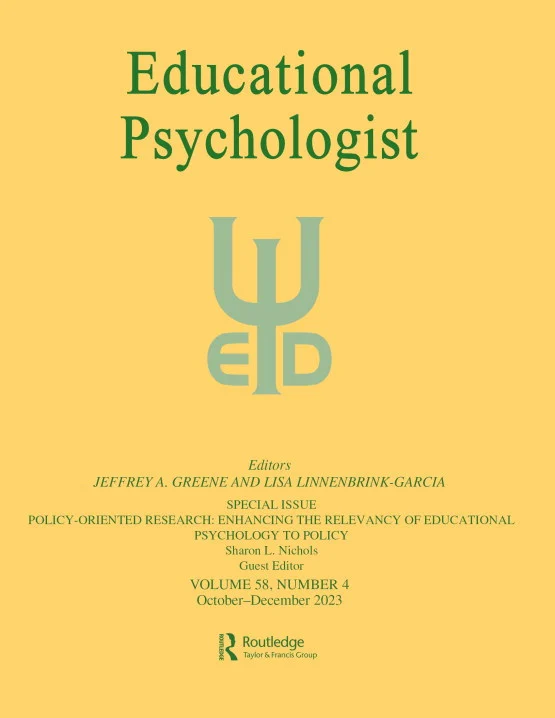开放科学时代对教育心理学研究的启示
IF 11.4
1区 心理学
Q1 EDUCATION & EDUCATIONAL RESEARCH
引用次数: 16
摘要
在过去的十年中,社会和健康科学中出现了广泛的争论,这些争论可能是常见的,但有问题的研究实践导致了有偏见的发现。这些挑战可能适用于教育心理学,尽管该领域在解决这些问题方面进展缓慢。本文讨论了当前的研究规范,在“开放科学”的大标题下提出的战略解决方案,以及两者对教育心理学研究综合的进行方式和它们产生的信息质量的影响。诸如预注册、透明报告、开放材料和数据以及注册报告等策略可以解决对研究综合有效性的重大威胁。这些挑战包括与出版、传播、选择性报道偏差、综合信息检索以及执行独特分析方法相关的挑战。最后一个问题是平行解决方案的发展,以解决研究人员进行和评估研究综合的决策和实践中的偏见。本文章由计算机程序翻译,如有差异,请以英文原文为准。
Implications of the open science era for educational psychology research syntheses
Abstract Extensive debate of potentially common, yet questionable research practices that lead to biased findings within social and health sciences has emerged over the last decade. These challenges likely apply to educational psychology, though the field has been slow to address them. This article discusses current research norms, strategic solutions proposed under the broad rubric of “open science,” and the implications of both for the way research syntheses in educational psychology are conducted and the quality of the information they produce. Strategies such as preregistration, transparent reporting, open materials and data, and registered reports stand to address significant threats to the validity of research syntheses. These include challenges associated with publication, dissemination, and selective reporting biases, comprehensive information retrieval, and opportunities to execute unique analytic approaches. A final issue is the development of parallel solutions that address biases in the decision making and practices of researchers conducting and evaluating research syntheses.
求助全文
通过发布文献求助,成功后即可免费获取论文全文。
去求助
来源期刊

Educational Psychologist
Multiple-
CiteScore
19.10
自引率
3.40%
发文量
16
期刊介绍:
The Educational Psychologist is a scholarly journal dedicated to exploring the psychology of learning and instruction. Articles in this journal encompass a diverse range of perspectives, from examining psychological mechanisms to exploring social and societal phenomena related to learning and instruction. The journal publishes theoretical and conceptual articles, as well as reviews and meta-analyses, that significantly contribute to theory or advance the methods used to explore educational psychology. Emphasizing innovation and advancing understanding, the journal does not publish articles solely reporting the methods and results of empirical studies; instead, all submissions, including reviews and meta-analyses, must offer clear implications for advancing theory. In addition to regular articles, the journal features special issues that delve into important themes in educational psychology, along with focal articles accompanied by peer commentary.
 求助内容:
求助内容: 应助结果提醒方式:
应助结果提醒方式:


